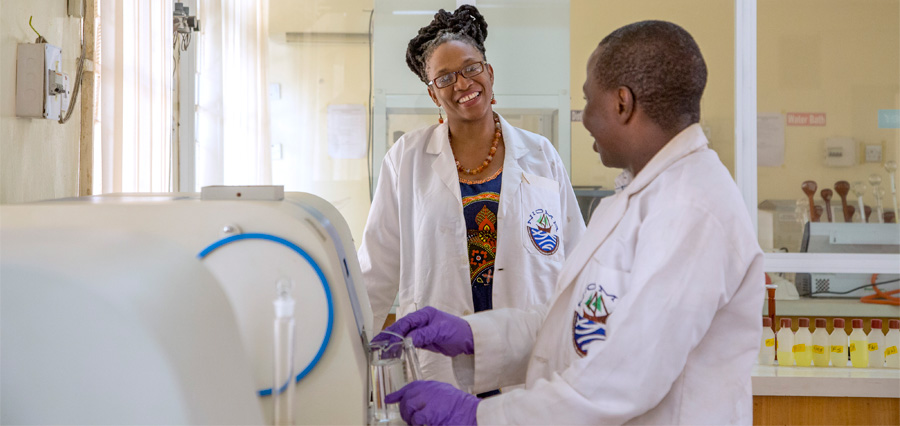
Recently, in July 2017, African Women in Agricultural Research and Development (AWARD) launched a new initiative that has now positioned it to scale up its contribution to agricultural research and development. The initiative, Gender Responsive Agricultural Research and Development (GRARD), seeks to support institutions to design research agendas that can drive sustainable and inclusive growth, by enhancing gender responsiveness within their research priorities and processes.
Noting the critical role of research in agricultural development and its influence in the performance of the agricultural value chains, AWARD now seeks to influence agricultural research and development (ARD) institutions to be more intentional in embedding gender responsiveness in their research activities. GRARD’s primary objective is to enhance gender responsiveness and inclusiveness across the African ARD sector by strengthening the ability of research institutions and individual scientists to conduct more inclusive, better targeted, and better-designed agricultural research in Africa.
Indeed, the need for inclusive approaches in ARD has been well documented: for example, the Gender in Agriculture Sourcebook 2009highlights that ‘failure to recognize the different roles of men and women in agriculture is costly, resulting in misguided projects and programs, forgone agricultural output and incomes, and food and nutrition insecurity. In its book on ‘Innovation for inclusive value-chain development’ the International food Policy Research Institute (IFPRI) notes that ‘agricultural value chain development initiatives may have differential impacts on men and women; hence, effective methods and tools are needed to design and implement intervention strategies that will enhance the benefits realized by women who participate in value chains. The newly released ‘Africa Agriculture Status Report 2017’ highlights the need for a more holistic and multi-sectoral approach in tackling the challenges faced in agriculture, for inclusive agricultural transformation. In a recently published policy brief, the International Fund for Agricultural Development (IFAD) notes that ‘integrated approaches – focusing on the needs of the most vulnerable people in rural and urban areas – will be essential to foster balanced and inclusive rural-urban transformations’.
GRARD’s implementation entails a two-tiered approach that will involve working with African agricultural research and development (ARD) institutions. GRARD will be instrumental in facilitating connections between different players in ARD, from individual partners at different nodes of the value chains to institutional players across the chain and to the environment of operation.
Charting an implementation pathway
For almost a decade, AWARD, through its flagship initiative- the AWARD Fellowship and in its training courses has engaged more than 330 institutions and more than 1500 researchers at different levels. The GRARD initiative now seeks to tap into this network of partners and beyond, to scale up its gender-responsive agenda.
On November 9-10 2017, in Arusha, Tanzania, AWARD kick-started the first phase of GRARD by bringing together some of the different institutions to identify entry points for implementation. Various institutions including, Tanzania’s Nelson Mandela- African Institution of Science and Technology, Mekelle University in Ethiopia, Federal University of Agriculture, Abeokuta (FUNAAB) in Nigeria, Lilongwe University of Agriculture and Natural Resources in Malawi, Ghana’s Council for Scientific and Industrial Research (CSIR), Division of Research and Development in Tanzania; World Agroforestry Centre (ICRAF) and Kenya Agricultural and Livestock Research Organization (KALRO) contributed to extensive discussions to provide a basis of enhanced understanding of GRARD components and the related roadmap for implementation.
AWARD’s Director, Dr. Wanjiru Kamau-Rutenberg, emphasized AWARD’s approach of partnering with various institutions in order to push for a more gender-responsive agricultural research at the institutional level. “We are fostering new partnerships with ARD institutions to help them achieve their mandates through building their capacity in areas of their choice”, she underscored.
The participants expressed their excitement and interest in the GRARD, noting the wealth of resources available in form of AWARD Fellows, mentors, and training beneficiaries who already have an understanding of the central role of gender-responsive agricultural innovation systems.
The two-day meeting certainly laid down the groundwork for the inception of GRARD and we look forward to continued collaboration on building gender-responsive ARD.
